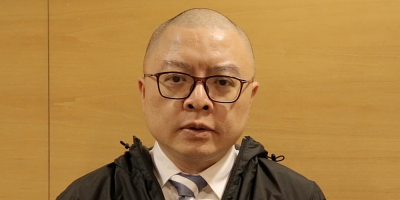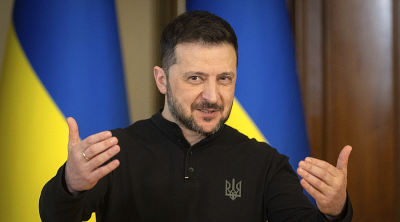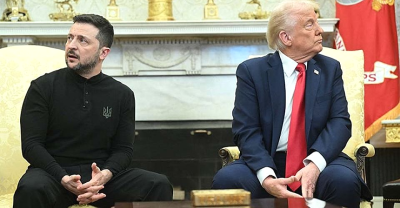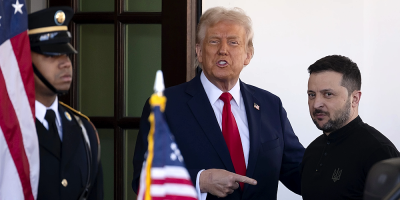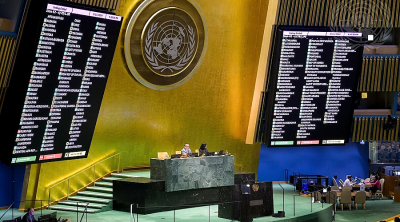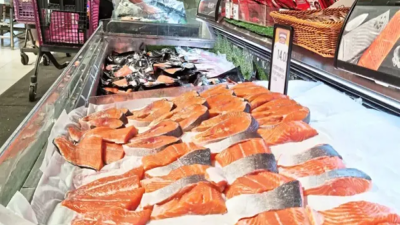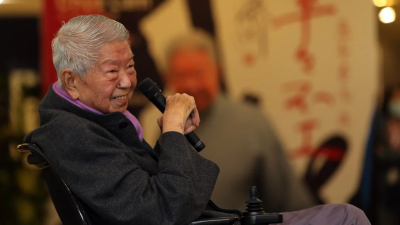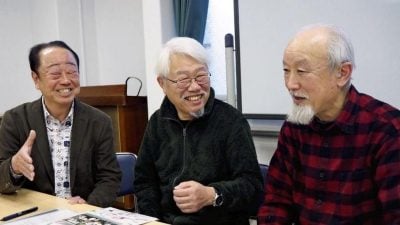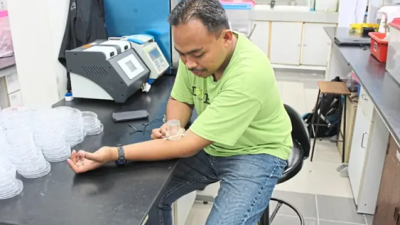Like the dispute between Malaysia and Singapore over the origins of Hainanese chicken rice, bak kut teh and laksa, several Eastern European countries are also fighting to claim the legendary beet root soup borscht as their own, including Ukraine and Russia.
In the midst of the ongoing war in Europe, Ukrainian chef Yurii Kovryzhenko vows to do his utmost to promote his country culinarily, to let the world see his country through the scintillating taste of his native cuisine.
Kovryzhenko was seen dressed in traditional Ukrainian costume vyshyvanka when we met him during the Malaysian leg of his Southeast Asian tour last month.
Besides Malaysia, the tour also took him to Indonesia, Vietnam, Thailand and Singapore, to raise funds for his war-ravaged homeland through a series of charity dinners.
When asked about the charity dinner in KL the previous night, he said, “They all loved it. I made them borscht, chicken Kiev and the honey cake from my mom’s recipe.”
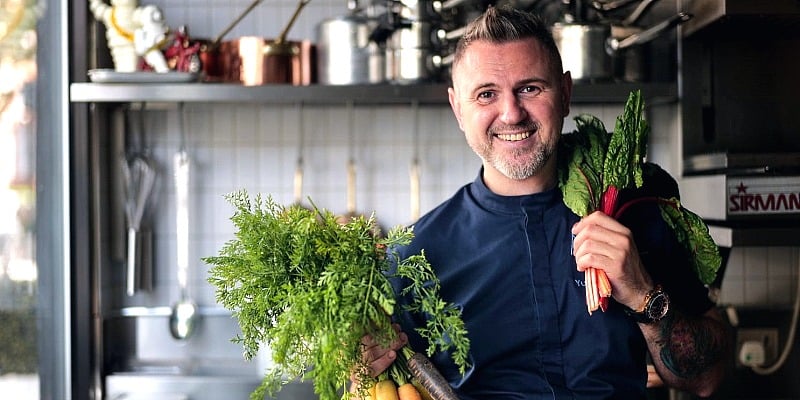
Regional variations
Many people tend to look at the entire Eastern Europe as part of the former Soviet Union without seeing their distinctions.
“Soviet Union existed only for 70 years, not the whole of our history.”
Kovryzhenko said Ukrainian cuisine had its origins during the medieval times, but during the Soviet days, Russia took some of the cuisines from various countries, modified them and called them their own, although such foods are no longer what they were originally.
Take borscht for instance, the Ukrainian version is teeming with vegetables, using fermented beet root juice as the base of the soup for its sourness, while the Polish version is clear soup with vushky (mushroom dumplings) and is a staple for Christmas.
Besides Ukraine and Poland, borscht can also be found in Moldova, Belarus and Russia although these countries do not actually produce beet root, radish or other vegetables.
“These places are too cold. Even if they are a little warmer nowadays, it was not like that in the past.”
He was of the opinion that the birthplace of a particular dish could be traced from the original producing areas of its ingredients before it slowly evolved into more localized variations in response to local weather conditions and the availability of local ingredients.
Borscht was first recorded by German adventurer Martin Gruneweg in 1584, at a time when Kyiv already had as many as 40 different borscht variations.
Kovryzhenko said people had been using local ingredients since time immemorial in preparing their foods. For instance, pork is used in central Ukraine, duck is used in the west, while fish is added to the soup in the south fringing the Black Sea, besides white and pink beet root.
“We can see from here that the same dish can have many different variations from place to place,” he said, citing the example of laksa of which there are many variations in Malaysia but only one in Singapore.
Culinary diplomacy
To Kovryzhenko, food is a predominant element in a country’s culture. “As long as you are willing to give it a try, it will penetrate deep into your heart!”
He mentioned the world’s first culinary diplomat Marie-Antoine Carême, who was the cook for Napoleon’s foreign minister Charles-Maurice de Talleyrand-Périgord. Carême would design the menu for any visiting foreign envoy, making food a perfect tool to promote and share a country’s culture.
To Kovryzhenko, the current wartime marks a very crucial moment for Ukrainian cuisine, and he was eager to shoulder the responsibility as the country’s culinary diplomat.
“Few people knew much about our culinary culture in the past. They even thought we were a part of Russia, until the war started several months ago.
“Today, the war has put my country in the global limelight again, and I want to make use of this opportunity to promote Ukraine’s cuisine and share our culture.”
More than half a year into the war, Kovryzhenko has opened a restaurant offering contemporary Ukrainian cuisine in London’s Chelsea called Mriya (meaning “dream” in the Ukrainian language).
He has always dreamt of opening restaurants in major global cities such as London, New York and Tokyo that will embody the dream of all Ukrainians for peace, victory, and return to their homeland.
In February, he and his girlfriend were at the Ukrainian embassy in London to help organize an event, and the war back home broke out merely five days after his arrival. As a result, they had to stay at the embassy for two and a half months.
“The first thing that came to my mind was to go back to Ukraine and join the army,” Kovryzhenko recalled.
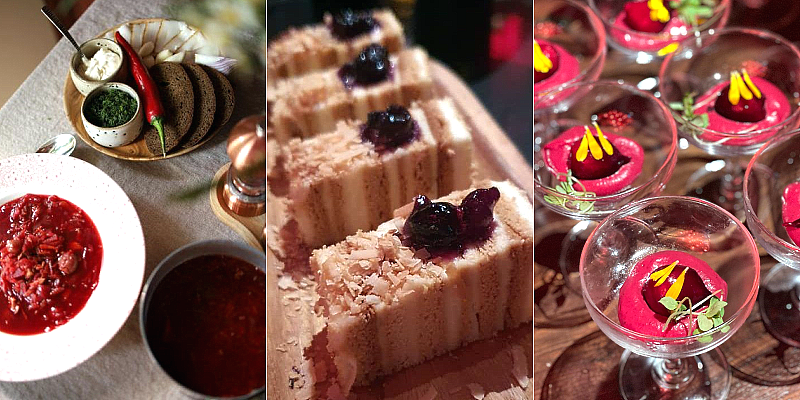
Charity dinners
His friends tried to dissuade him, saying there wasn’t anything he could do as he did not even know how to shoot with a gun. They suggested that as a chef, perhaps he could try to raise funds to help his countrymen instead.
So he approached other celebrity chefs such as Richard Corrigan of Ireland and Jamie Oliver of the UK to work together for a series of charity dinners, including one that seated over a thousand diners.
More than 20 charity dinners had been organized within the first two months, raising over half a million pounds (approximately RM2.6 million) for charity institutions to help the frontline personnel in Ukraine.
Affected by the war, Kovryzhenko’s restaurant in Kyiv was shut down.
“The duty of a chef is to prepare good food for people to enjoy, not confined to specific events.” Because of that, he chose Chelsea as the site of his restaurant Mriya manned by Ukrainians exclusively.
Mriya has since become Ukraine’s cultural or culinary embassy in London.
A slice of home
Although many Britons have offered assistance as well as accommodation for Ukrainian refugees, there isn’t a place these newcomers could prepare their country’s cuisine.
But at Mriya, they not only get to enjoy traditional food from their home country, but also the atmosphere. Strangers begin to chat among themselves and slowly, a community is taking shape.
During the restaurant’s soft launch, a patron told him, “When I was young, my family and I would travel to Crimea for vacation every summer. There was a café by the beach, and did you know your vorschmack tastes exactly the same as what I had then?
“Thank you for bringing back the memories of my childhood!”
When asked what was the first thing he would do after the war, he said, “Pop a champagne bottle and celebrate with colleagues on the street outside my London restaurant.”
Other than the charity dinner in KL, Kovryzhenko also exchanged his experiences with chefs from local hotels. He also organized a master’s class to share the recipe of borscht with Malaysian chefs ahead of the year-end Christmas season.
He believed Ukrainian cuisine would have a strong following in Malaysia.
“We don’t use much seasoning in our food other than a little of black pepper, bay leaf, thyme and onion.
“But we also have very spicy foods, such as the traditional Crimean Tatar sauce made of chili, tomato, onion and garlic blended together.”
ADVERTISEMENT
ADVERTISEMENT






